 Shutterstock
Shutterstock
Dogs have an extraordinary sense of smell, believed to be 10,000 to 100,000 times more sensitive than that of humans. This heightened ability allows them to detect a wide range of scents from far distances, making their noses incredibly useful. However, their powerful sense of smell also means they are much more likely to find certain odors unpleasant or overwhelming. While we may enjoy or barely notice some scents, dogs can find them offensive or even distressing, prompting them to avoid certain areas or react negatively to particular smells.
Citrus
 Shutterstock
Shutterstock
Citrus fruits like oranges, lemons, and limes may have a refreshing scent for us, but dogs find these smells overwhelming and unpleasant. The strong aroma of citrus is too intense for their sensitive noses, and they often avoid areas where these fruits are present. Citrus peels are sometimes used as a natural deterrent to keep dogs away from gardens or off furniture. If you want to keep your dog away from certain places, using citrus scents can do the trick, as most dogs will give a wide berth to the tangy odor.
Vinegar
 Shutterstock
Shutterstock
While vinegar is great for cleaning and can be used as a natural disinfectant, its strong, pungent odor is something that dogs absolutely hate. The sharpness of vinegar is overwhelming for a dog’s heightened sense of smell, and they may even sneeze or paw at their nose if they get a whiff of it. Many pet owners use vinegar as a deterrent to keep dogs away from areas where they shouldn’t go, such as trash bins or furniture. Just be careful not to use it directly on your dog, as it can be too harsh for their sensitive noses.
Ammonia
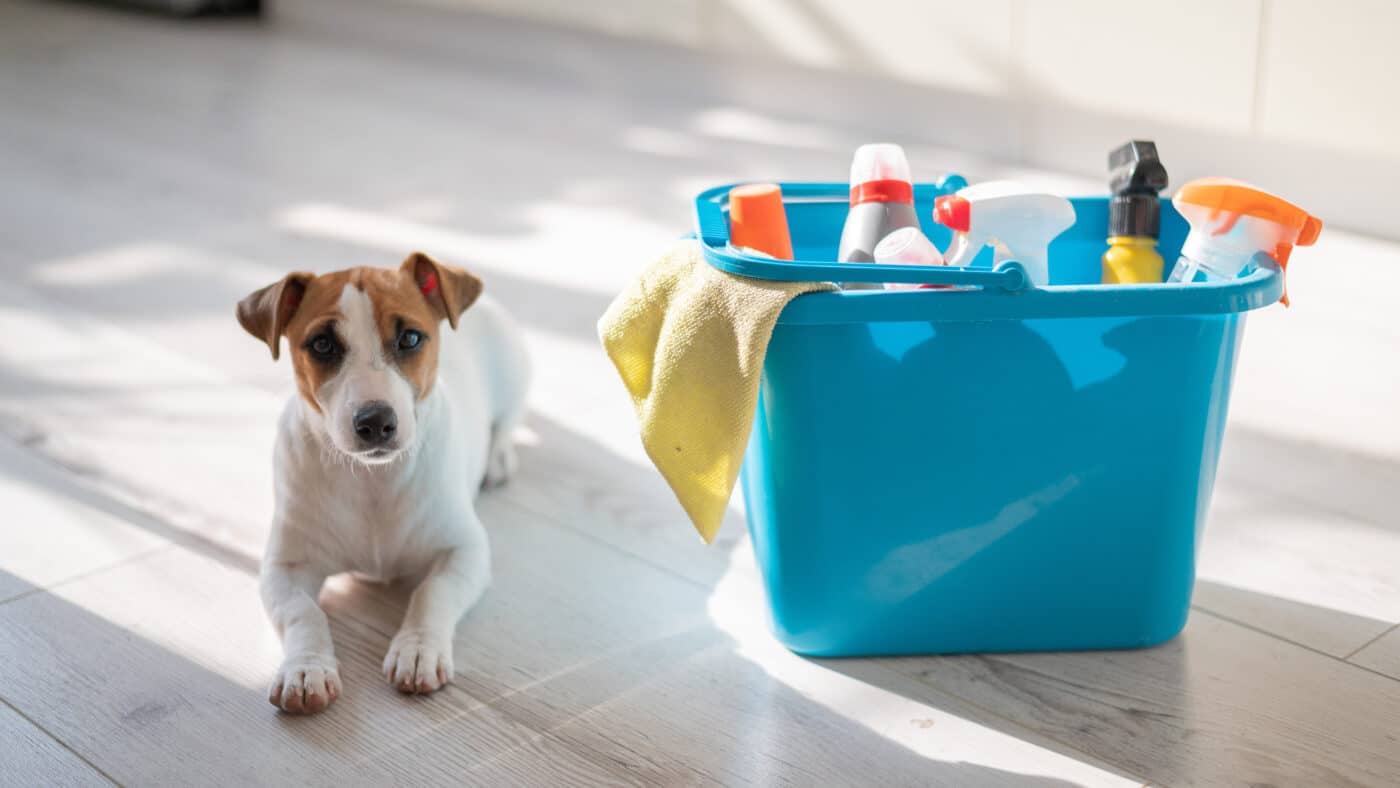 Shutterstock
Shutterstock
Ammonia is another scent that dogs find repulsive. The strong chemical odor is harsh on their sensitive noses and can even irritate their respiratory system if inhaled in large amounts. Dogs often associate the smell of ammonia with urine, which is why it can trigger a negative reaction. It’s best to avoid cleaning products that contain ammonia if you have dogs in the house, as they may find the lingering scent distressing. Instead, opt for pet-friendly cleaning products that are safer and less offensive to your furry friend.
Rubbing Alcohol
 Shutterstock
Shutterstock
Rubbing alcohol has a very strong and distinct smell that most dogs find off-putting. The sharpness of the alcohol is overwhelming to their senses, causing them to avoid areas where the scent is present. While it’s common to use rubbing alcohol for cleaning or first-aid purposes, it’s best to keep it away from your dog’s nose. If your dog needs a wound cleaned, be sure to use pet-safe antiseptic solutions instead, as rubbing alcohol can sting and further aggravate their already strong aversion to the smell.
Perfumes and Colognes
 Shutterstock
Shutterstock
While many of us enjoy wearing perfumes and colognes, the strong scents in these products can be overwhelming for dogs. Their sensitive noses are bombarded by potent fragrances, which often contain chemicals and artificial ingredients that can be irritating. For dogs, even a mild perfume can be too intense, causing them to sneeze, shake their head, or rub their face on the ground to escape the smell. If you’re planning to interact closely with your dog, consider opting for unscented or pet-friendly products to avoid overwhelming their sense of smell.
Mothballs
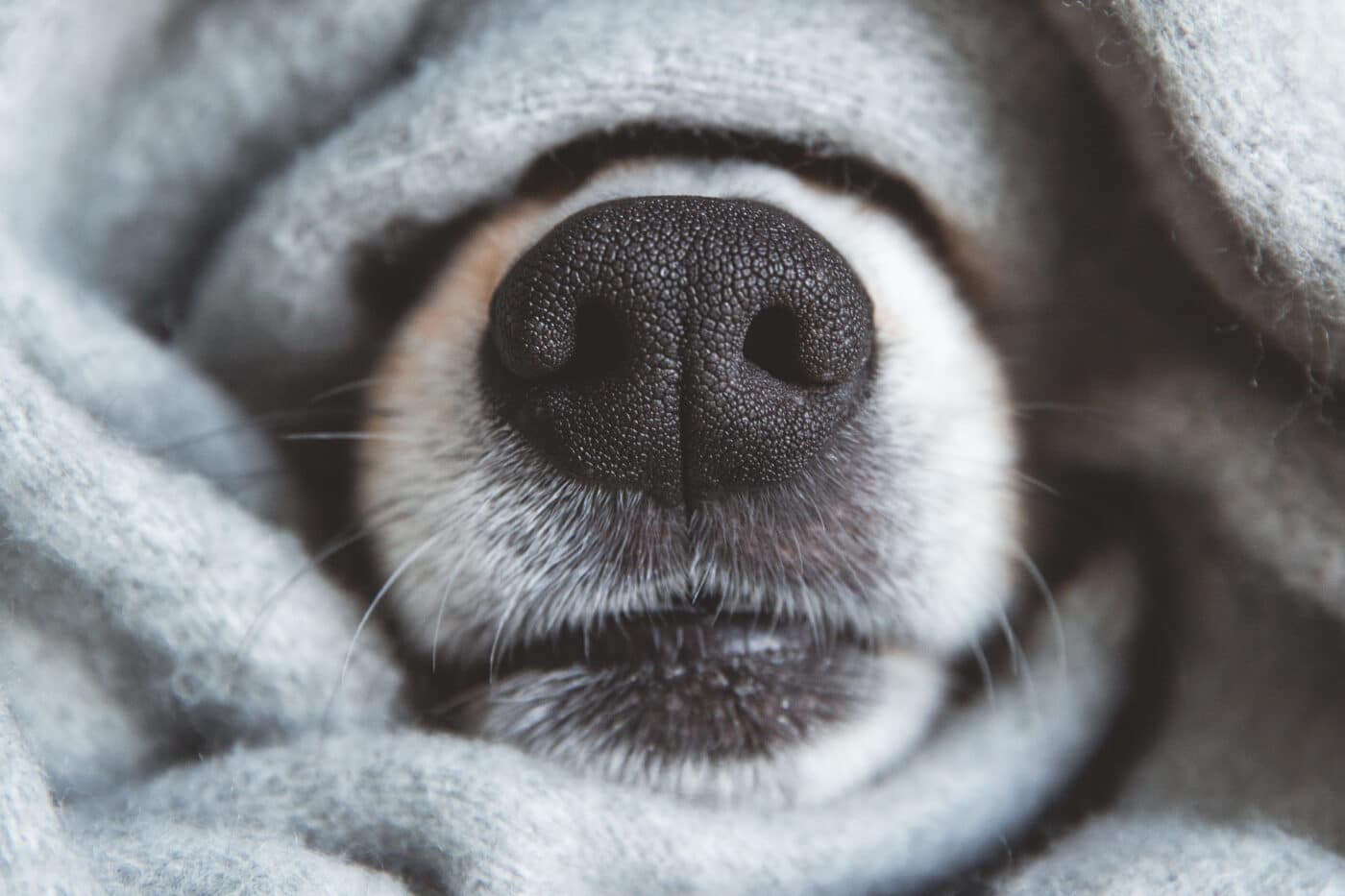 Shutterstock
Shutterstock
Mothballs are known for their strong and pungent odor, which is used to repel insects. Unfortunately, this scent is also highly unpleasant for dogs, and it can even be toxic if ingested. The chemicals in mothballs are harsh on a dog’s sensitive nose, and they will often avoid areas where mothballs are present. If you need to keep moths away from clothing or storage areas, make sure to place mothballs out of your dog’s reach, or consider using natural alternatives like cedar chips, which are less offensive to their sense of smell.
Chili Peppers
 Shutterstock
Shutterstock
The spicy, pungent aroma of chili peppers is something that dogs absolutely can’t stand. The capsaicin in chili peppers, which gives them their heat, is also irritating to a dog’s nose and respiratory system. Even a small whiff of chili pepper can cause a dog to sneeze or paw at their face. Some pet owners use chili pepper powder as a natural deterrent to keep dogs away from certain areas. Still, it’s important to be cautious, as exposure to chili peppers can cause discomfort and irritation to your dog.
Nail Polish and Nail Polish Remover
 Shutterstock
Shutterstock
Nail polish and nail polish remover have a strong, chemical scent that is off-putting to dogs. The fumes from these products are harsh on a dog’s sensitive nose and can cause them to sneeze or rub their nose to escape the smell. Acetone, which is commonly found in nail polish remover, can be particularly irritating. If you’re doing your nails at home, make sure to keep your dog away from the area to prevent them from inhaling the fumes. It’s always a good idea to ventilate the space to minimize the impact on your dog’s sensitive sense of smell.
Household Cleaners
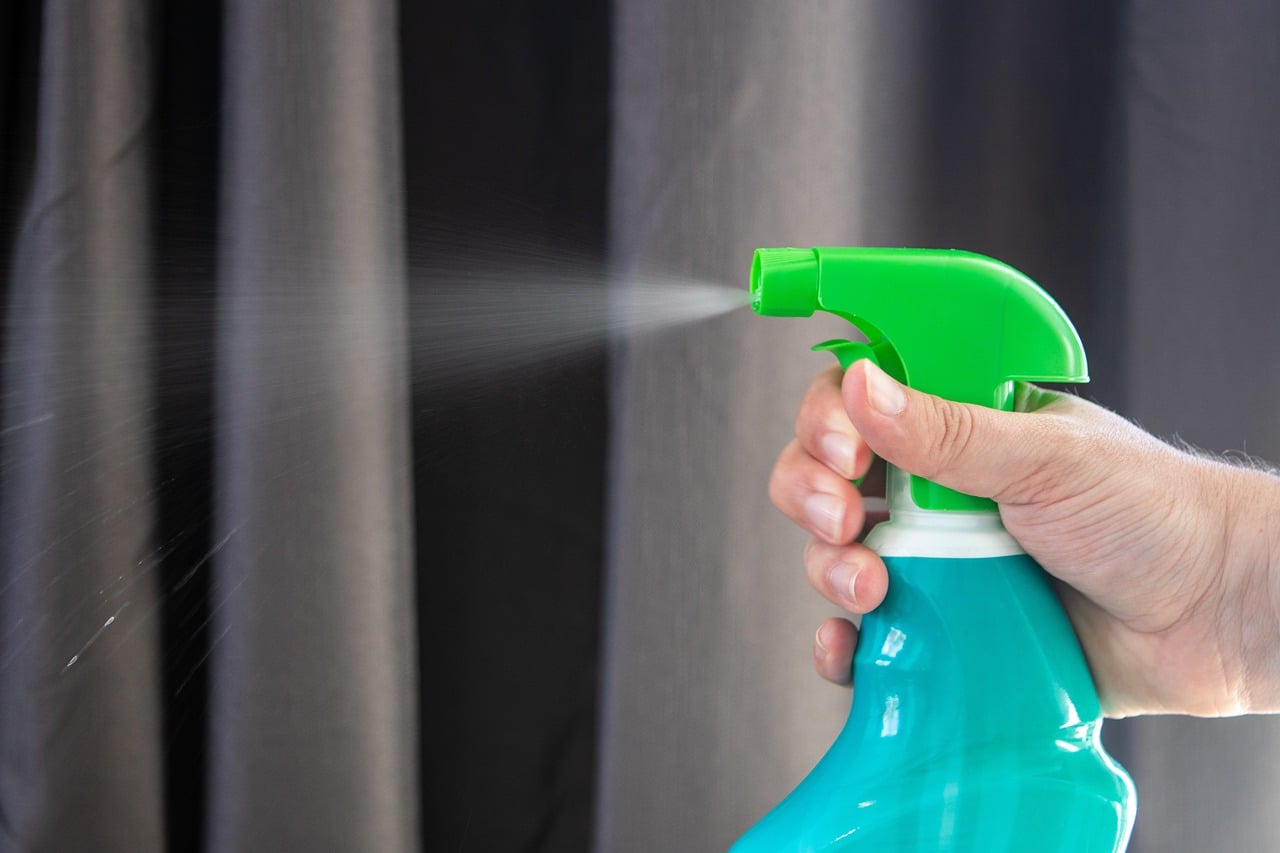 Shutterstock
Shutterstock
Many household cleaners contain strong chemicals and artificial fragrances that can be overwhelming for dogs. Bleach, ammonia, and other cleaning agents have intense odors that dogs find unpleasant and even irritating. The strong fumes can affect a dog’s respiratory system and may cause them to avoid areas where these cleaners are used. When cleaning, consider using pet-safe, natural cleaning products that are less offensive to a dog’s nose. Not only are they better for your dog’s health, but they can also help make your home more dog-friendly.
Essential Oils
 Shutterstock
Shutterstock
While essential oils are often used for aromatherapy and natural cleaning, some scents can be too strong for dogs. Oils like eucalyptus, tea tree, peppermint, and cinnamon are particularly offensive to dogs, and exposure to these scents can cause discomfort or even toxicity. While essential oils are natural, they are highly concentrated, which makes their aromas too intense for dogs. If you’re using essential oils in your home, make sure they are diluted and used in moderation and avoid diffusing oils that are known to be harmful to dogs.
Smoke
 Shutterstock
Shutterstock
The smell of smoke, whether from cigarettes, cigars, or fires, is something dogs absolutely detest. Their sensitive noses pick up on the strong and pungent odor, and prolonged exposure to smoke can irritate their respiratory system. Inhaling smoke can be harmful to a dog’s health, causing coughing, sneezing, or even breathing problems. If you smoke, it’s best to do so away from your dog and avoid exposing them to secondhand smoke. Similarly, if you’re having a bonfire or barbecue, make sure your dog has a smoke-free space where they can retreat.
Strong Spices
 Shutterstock
Shutterstock
Dogs tend to dislike the smell of strong spices such as cinnamon, cloves, and allspice. The pungent aromas can be overwhelming and may irritate their sensitive noses. While these spices are often associated with pleasant scents for humans, dogs can find them too intense. It’s best to keep spices out of your dog’s reach and avoid using them as deterrents, as they can cause discomfort or irritation. Instead, use pet-safe repellents if you need to keep your dog away from certain areas.
Cleaning Products with Citrus Scents
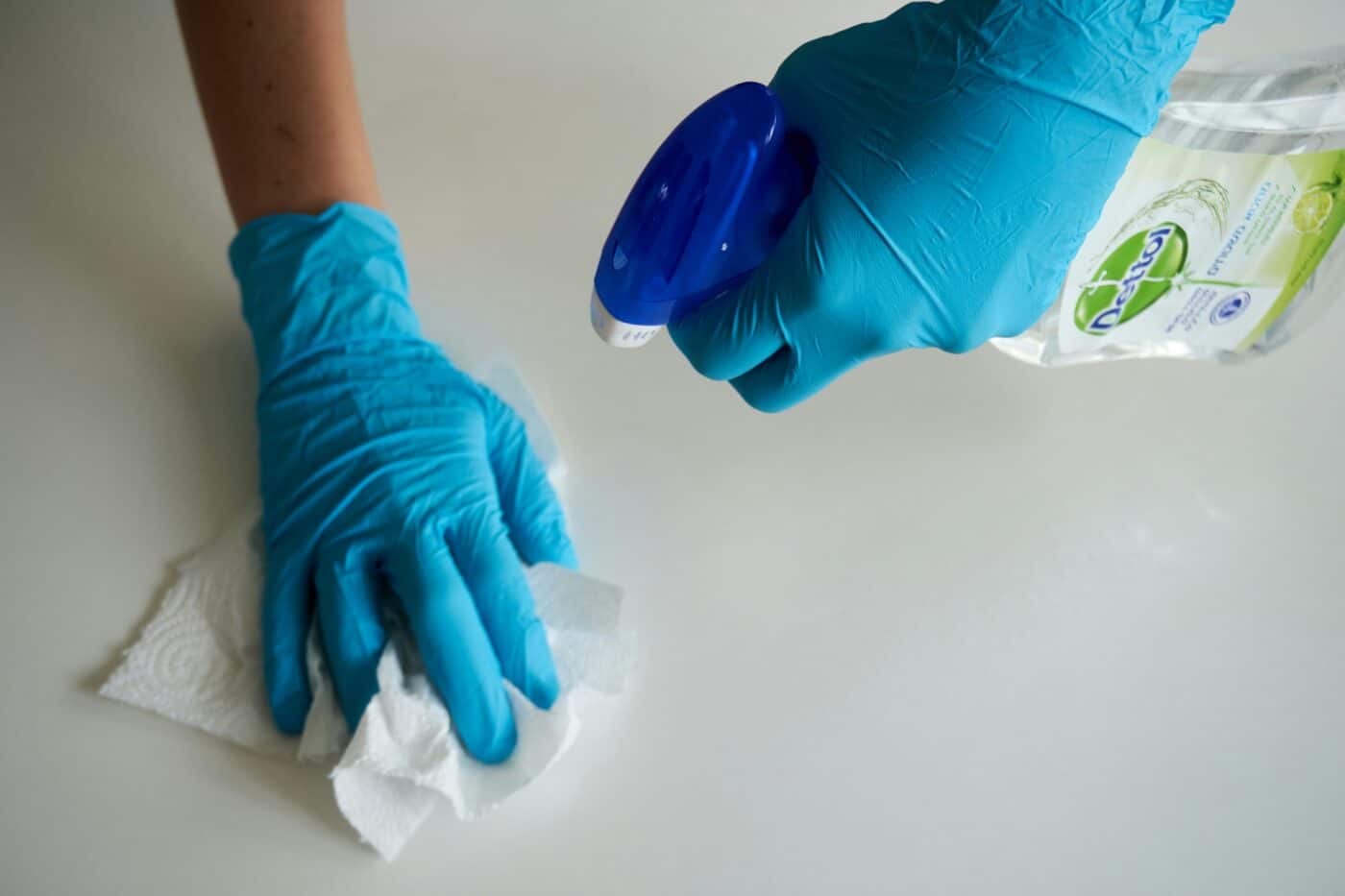 Shutterstock
Shutterstock
Although citrus fruits themselves are offensive to dogs, cleaning products with added citrus scents can be just as unpleasant. Many cleaning products use lemon or orange scents to leave a fresh aroma after cleaning, but dogs find these artificial citrus smells overwhelming. The combination of strong chemicals and citrus fragrance can be particularly harsh on a dog’s sensitive nose, leading them to avoid areas where these cleaners are used. When choosing cleaning products, consider pet-safe options that are free from artificial scents.
Smells Dogs Won’t Tolerate
 Shutterstock
Shutterstock
Some odors are simply unbearable for dogs, causing reactions that range from sneezing and discomfort to complete avoidance. While we may find certain scents pleasant or barely noticeable, they can be overwhelming for our furry friends, turning a seemingly harmless smell into a nightmare. The next time you’re using strong-scented products, cooking with spices, or cleaning with harsh chemicals, remember your dog’s sensitive nose. Give them a break from those overwhelming aromas because when it comes to “sniffing out” trouble, your dog’s nose truly knows best!

 1 month ago
13
1 month ago
13
















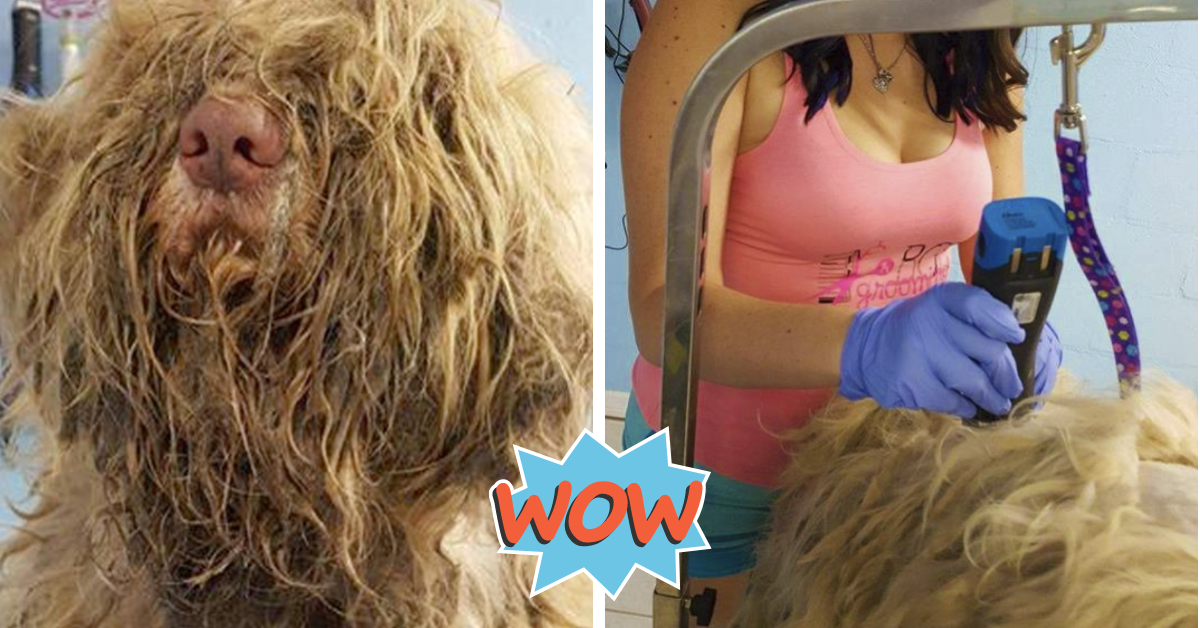

 English (US) ·
English (US) ·